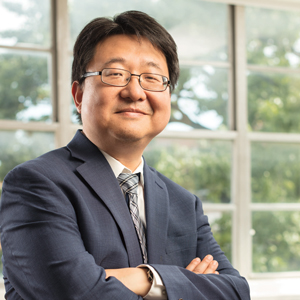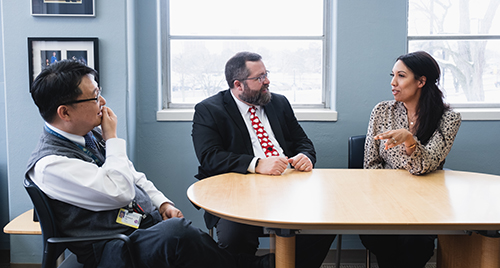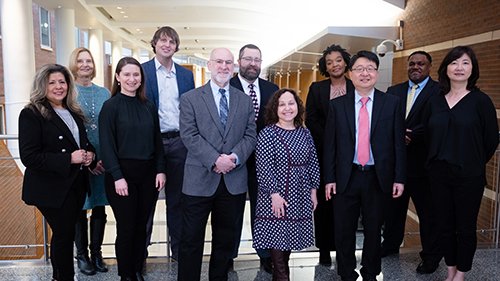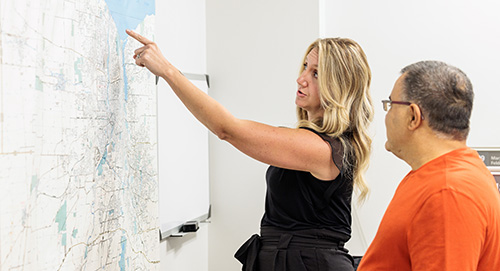About Us
Rochester Psychiatry strives to be an international leader in clinical care, community service, education, and research. Our institution pioneered the biopsychological model of health and illness, which is at the core of all training programs in psychiatry.
Our vision is to develop an innovative clinical department offering outpatient and inpatient care with a four-fold mission: clinical care, education, service, and research.

Hochang B. Lee, MD, Department Chair
Vision
As a Department of permeable boundaries across missions, disciplines, and care settings, we strive to be an innovative model of academic psychiatry providing team-based, humanistic care driven by cutting-edge science and education excellence.

Values
Upholding the spirit of the biopsychosocial model,collaboration, communication, complementarity, competence, and compassion are foundational values for how we work together to advocate and support our vulnerable patients through our clinical care, education, and research.

Mission
We provide high-quality, compassionate behavioral healthcare in the Finger Lakes community, powered by our world-class researchers, teachers, and clinicians.

Strategic Intent
- Provide innovative, integrated care models that deliver cost-effective, high-quality behavioral health services.
- Advocate and deliver quality behavioral health services in our community, assist doctors in treating vulnerable populations, and strengthen ongoing educational and research partnerships with community organizations.
- Prepare future leaders in value-based healthcare and translational science by promoting collaboration, communication, complementarity, competence, and compassion.
- Expand the department’s expertise in clinical epidemiology and prevention studies.
Strategic Goals
01
Deliver exceptional patient-centered, evidence-based care locally and regionally.
02
Integrate research programs into existing clinical programs to improve clinical decision-making and outcomes.
03
Foster interprofessional learning by training a team-oriented and community-centered team.
04
Advance an team-oriented culture that attracts and retains top faculty, staff, and students.
05
Enhance faculty, staff, and learner wellness and resilience.
06
Develop the next generation of leaders in behavioral health.
Guided by the 5 Cs - Collaboration, Communication, Complementarity, Competence & Compassion
For the key to optimal patient care is collaboration, communication and complementarity among all branches of the health professions…To buttress collaboration, communication, and complementarity, the fourth indispensable attribute of health care professionals must be competence.
~ George L. Engel, MD, creator of the biopsychosocial model
The Department of Psychiatry follows the 5 Cs Guide to ensure we provide the highest level of care. We strive to be a compassionate organization for our patients, staff, and each other to carry out the spirit of the biopsychosocial model. Compassion was added as the fifth “C”. Compassion involves allowing ourselves to be moved by suffering and experiencing the motivation to help alleviate and prevent it.
Biopsychosocial Model
The Department of Psychiatry at University of Rochester Medical Center has had a long and distinguished history since John Romano and George Engel founded the Department in 1945. Our department is the birthplace of the "Biopsychosocial Model of Medical Illness" that serves as the cornerstone of education and training of students and trainees across the field of psychiatry. With the biopsychosocial model as the core organizing principle, we strive together to develop the Rochester model of psychiatry as the international leader in clinical care, community service, education, and research in psychiatry.
Engel, G. L. (1979). The biopsychosocial model and the education of health professionals. General hospital psychiatry, 1(2), 156-165. https://doi.org/10.1111/j.1749-6632.1978.tb22070.x



